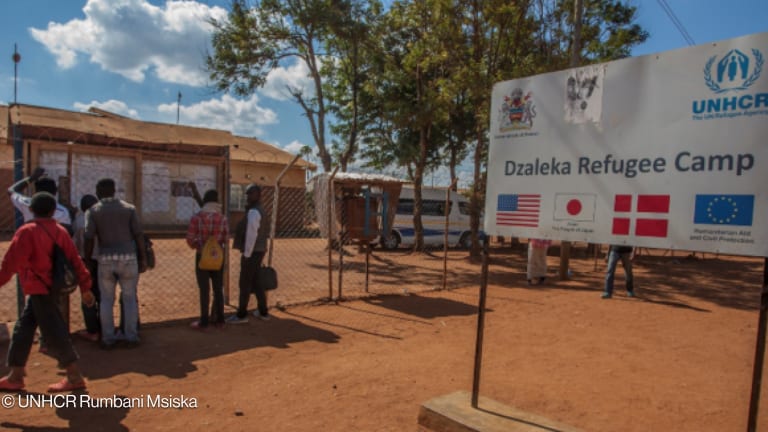
ABIDJAN — Fighting among armed groups across the Central African Republic continues to stall humanitarian response efforts in this country of 5 million, where an estimated 70 percent of the country’s territory remains under the control of armed groups.
Rather than showing signs of improvement, the fragile situation shows pervasive signs of instability as violence spreads to new “hotspots” in 2018, most recently in the northwest town of Paoua — an area where 65,000 people fled from their homes due to fighting between the National Movement for the Liberation of the Central African Republic and the Revolution and Justice Movement.
“Paoua is a proof of the unpredictability and fragility of the situation in CAR,” Assistant Secretary-General for Humanitarian Affairs and Deputy Emergency Relief Coordinator Ursula Mueller said during her in-country visit last week. “Aid organizations should be given greater means to provide principled and effective humanitarian assistance when needs arise and should be able to deliver assistance and protection services rapidly and effectively,” she insisted.
See more related topics:
► Q&A: Networking with communities and armed groups in CAR's humanitarian response
► Security risks push humanitarians out of Central African Republic, even as need grows
► Sahel Security Watch: 5 deteriorating situations for NGO safety
Since late January, the United Nations Multidimensional Integrated Stabilization Mission in the Central African Republic has sought to establish a secure perimeter around the city of Paoua to allow displaced populations to return home. However, hundreds of people have been killed due to fighting this year, several villages destroyed, and thousands of homes burned — making the return to normalcy a slow one for many.
The total number of internally displaced persons at the end of last month has more than doubled since last year, reaching 700,000. These figures, along with an additional 540,000 refugees in nearby Cameroon, Chad, the Democratic Republic of the Congo, and Congo-Brazzaville creates a situation where 1 in 5 people in the country are displaced or on the move, United Nations Children’s Fund CAR Representative Christine Muhigana told Devex.
“We hope the situation is not going to become worse but it’s definitely not going in a positive direction,” she said. “Continued fighting by armed groups which drives people into displacement, or prevent them from going home when they want to return unfortunately hampers the delivery of humanitarian aid to the people in the area where they are displaced.”
Peace building and humanitarian efforts in CAR have also been stifled by the limited capacity of the national government, whom Muhigana said has minimal reach outside of the capital city, Bangui.
“We work as closely as we can with the government in CAR [but] unfortunately their capacity is relatively weak, so in our interaction with them, we make sure that through our assistance we strengthen or build their capacity to not only coordinate and lead the response to the humanitarian situation, but also guide and establish norms for what needs to be done for their own people,” she explained.
To assist government recovery efforts, UNICEF has helped health officials and educational authorities return to their provincial-level posts to provide assistance for those impacted by violence, fighting, and displacement in their regions.
To date, UNICEF has intervened in the areas of education in emergencies, child protection, and health and nutrition, addressing pockets of severe acute malnutrition in children within 14 IDP sites that have been erected since last year “so that children can continue to learn and get some sense of normalcy and protection while at IDP sites,” Muhigana told Devex. The U.N. children’s branch has also implemented vaccine and immunization programs and has assisted with the release and societal reintegration of 3,000 children who were formerly associated with armed groups.
Funding the CAR Humanitarian Response Plan remains a challenge. A 2018 appeal for $516.5 million was structured around three main pillars: Saving lives, respecting fundamental rights, and preserving human dignity. It would fund various forms of assistance ranging from nutrition, health, water and sanitation, child protection, education, and a rapid response mechanism.
Last year, the appeal was 39 percent funded, making a fully-funded humanitarian response less than feasible and the CAR humanitarian appeal one of the least funded globally.
“This worrying situation is developing at a time when funding of humanitarian response for CAR has declined over the past three years,” Mueller noted.” We need to act now to prevent a further deterioration which would require much more resources to address and could seriously impact the stability and the security of the whole Central African region.”








